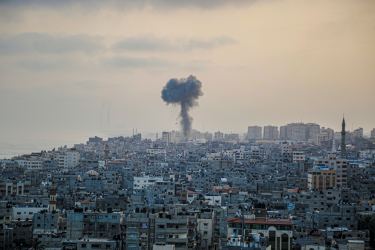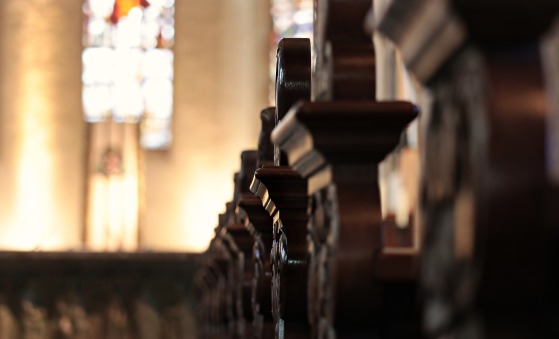
After a devastating visit to Gaza from 18–20 July, two senior Christian leaders spoke out against the ongoing suffering caused by war. Cardinal Pierbattista Pizzaballa, Latin Patriarch of Jerusalem, and Greek Orthodox Patriarch Theophilos III visited the Holy Family Parish church compound, which had recently been struck by Israeli shelling. The attack killed three people and injured ten others.
Despite the destruction, the leaders said they witnessed something even stronger, the human spirit.
“We saw the dignity of people who refuse to give up,” said Cardinal Pizzaballa. “Mothers were cooking for others, nurses gently treating the wounded, and people still praying to the God who sees and never forgets.”
He added, “Christ is present in Gaza, in the wounded, under the rubble, and in every act of compassion and hope.”
As they travelled, the patriarchs described heartbreaking scenes: long queues for food, malnourished children, and families struggling to survive. They were especially moved by the soaring prices of basic goods, including reports of tomatoes costing $100 for just 2 pounds on the black market. These conditions, they warned, are endangering the lives of the elderly and children.
“This level of suffering is morally unacceptable,” said the cardinal. “It’s hard to bear when you see people standing in the sun for hours just for a simple meal.”
Patriarch Theophilos echoed the concern, calling the situation "very sad" and describing a people “crushed by war, but still bearing the image of God.” Among the ruins of the Church of the Holy Family, they witnessed both deep sorrow and a determined hope.
In a public appeal, the patriarchs urged world leaders not to remain silent in the face of such suffering. “To be silent is a betrayal of conscience,” said Patriarch Theophilos. He specifically called for peace and reminded leaders of Jesus’ words: “Blessed are the peacemakers, for they shall be called children of God.”
The leaders met with U.S. Ambassador to Israel Mike Huckabee shortly after their visit. They discussed not only the crisis in Gaza but also growing settler violence in the West Bank, including the recent attack on the Christian village of Taybeh.
Cardinal Pizzaballa appealed directly to U.S. President Donald Trump and other global leaders to act quickly to stop the destruction. The current war began in October 2023, after the Hamas-led attack on southern Israel, which killed 1,200 people and took 250 hostages. Around 50 hostages are believed to remain in captivity, with 20 possibly still alive, held in underground tunnels.
The cardinal described Gaza as nearly unrecognisable. Areas he had visited just months earlier, like the Rosary Sisters’ School, were now reduced to rubble. Despite warnings to evacuate, around 400 people remain in the Holy Family compound, and 160 are sheltering at the Greek Orthodox St. Porphyrios Church.
He also clarified misinformation that they had brought 500 tons of aid into Gaza. While they have received permission from Israeli authorities, they are still working with local partners to deliver supplies safely.
Cardinal Pizzaballa stressed the urgent need for aid, saying, “Every hour without food, water, medicine, or shelter causes serious harm. Humanitarian help is not a luxury, it’s a matter of life and death.”
He emphasised that the Church’s mission in Gaza is to serve everyone, not just Christians, but Muslims, refugees, children, and all who are suffering.
A particularly moving moment came when the patriarch spoke of a father sitting beside the hospital bed of his only surviving child. “There can be no future based on captivity or revenge,” he said. “We must restore life, dignity, and humanity.”
Despite the tragedy, the leaders were encouraged by the resilience of Gaza’s children. “They were playing even as bombs fell around them,” said the cardinal. “They remind us that something of our humanity remains alive.”
Cardinal Pizzaballa also expressed his gratitude to Christians worldwide for their prayers and support. He made it clear that criticism of Israel’s actions in Gaza does not mean opposition to the Israeli people.
“We are not against Israel or its citizens,” he said. “But we must be honest: the current policy in Gaza is morally wrong. We need to find a way forward that includes everyone.”
At the close of the press conference, a Muslim elder from Jerusalem, Abu-El-Walid Dajani, thanked the Church leaders for their courage. “We are all hoping for a better life in Gaza,” he said. “May peace one day return to the Holy Land.”
Adapted from UCA News.




